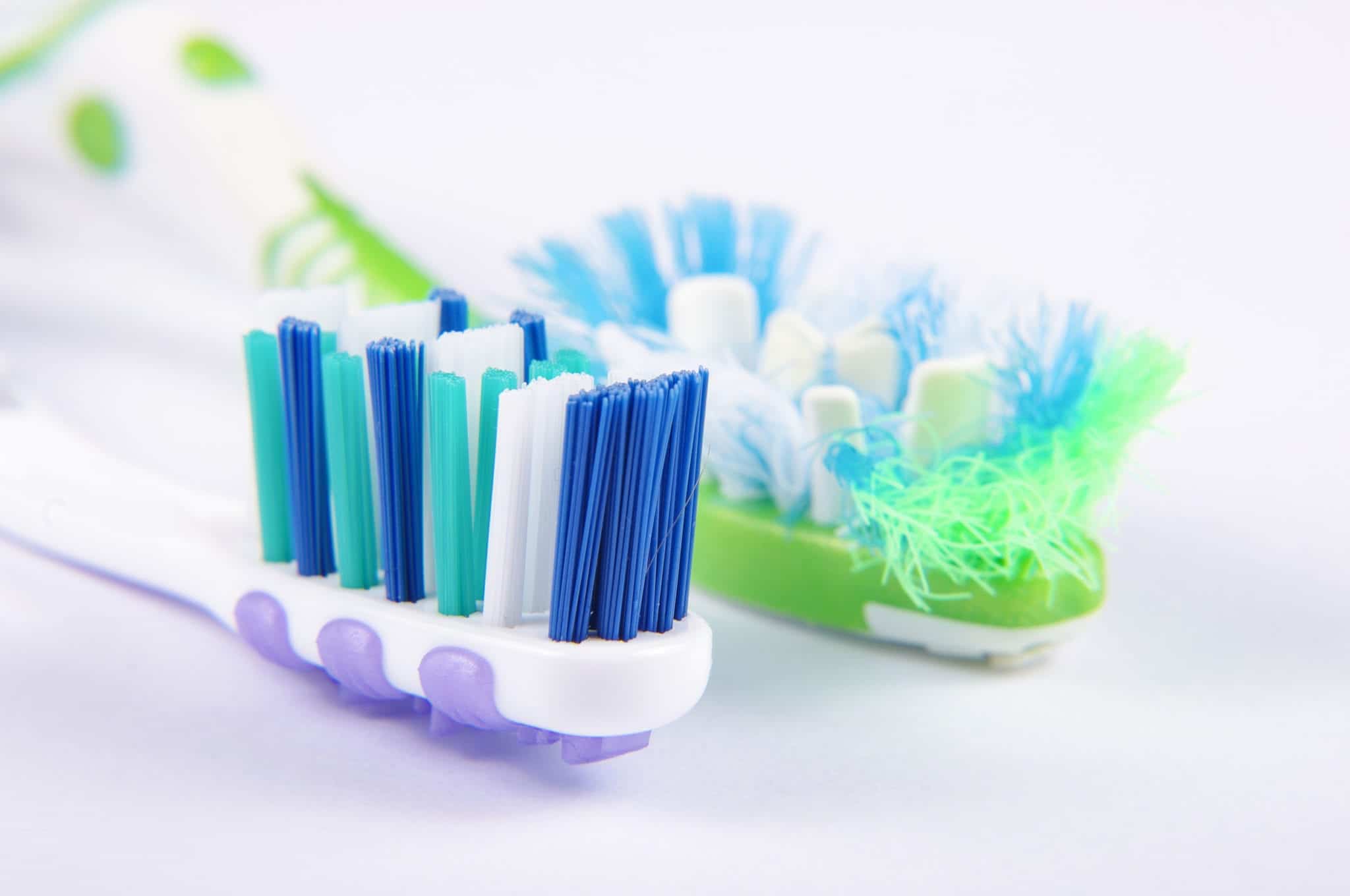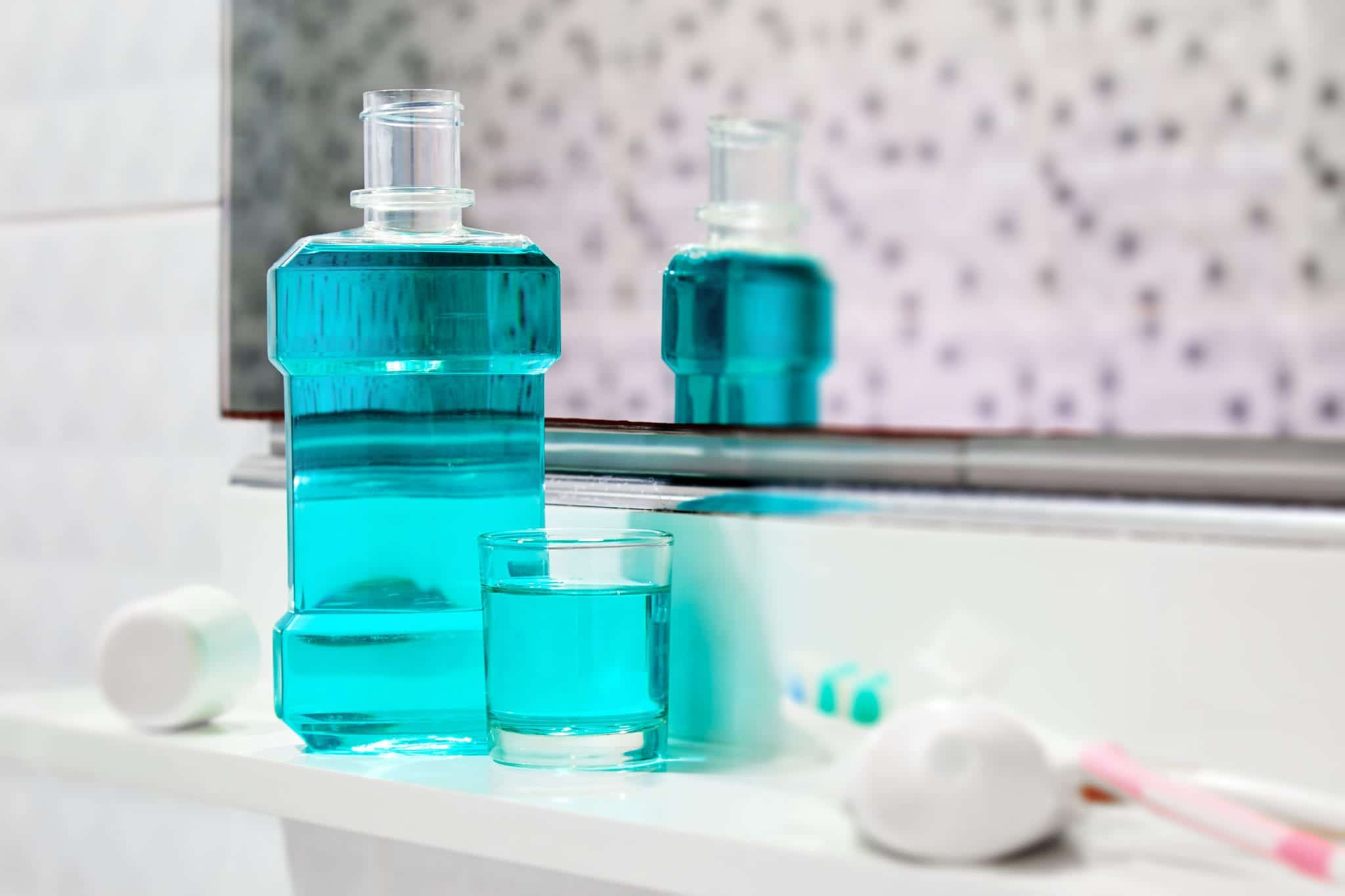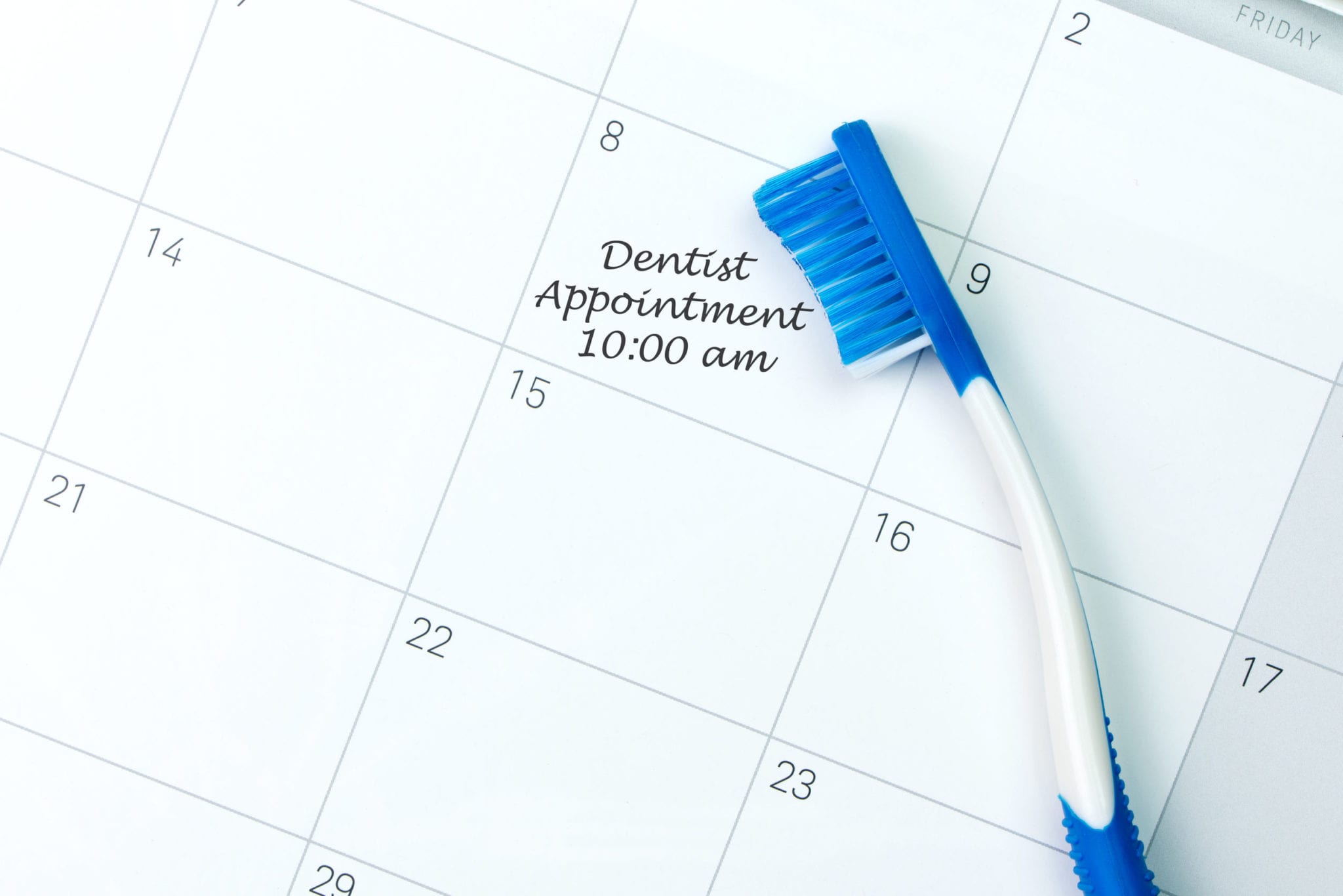
Your toothbrush needs proper care to keep your mouth healthy and clean. Here are the best ways to take care of your toothbrush for optimum oral health.
Replace Your Toothbrush
You need to replace your toothbrush when the bristles are frayed, since frayed bristles don’t do a good job of cleaning your teeth. Mark your calendar for three months past the date you start using a new toothbrush. Whether it’s a manual or electric toothbrush, three months is the longest you should expect a toothbrush head to last.
People who use extra pressure when brushing, or those who have orthodontic appliances like braces, may need to replace their brushes more frequently.
Get in the habit of inspecting your toothbrush every week. If you notice too many signs of wear and tear, it’s time for a new brush.
Be sure to inspect your child’s toothbrush on a regular basis, as children tend to wear out toothbrushes faster than adults.
Practice Sanitary Habits
Your mouth contains billions of active microorganisms that can cause infection if their numbers multiply. Some of these microorganisms can live on your toothbrush.
The best way to keep these microorganisms from getting out of control is to thoroughly rinse your toothbrush in plain water after every use. Tap any remaining water out before storing your toothbrush upright in open air. Keeping your toothbrush closed in a drawer or toothbrush holder can cause microorganisms to multiply.
If more than one toothbrush is stored in a single room, make sure each one has its own holder or cup to discourage cross-contamination.
One Toothbrush Per Person
Never share your toothbrush with another person. You can dramatically increase your risk of infection by using another person’s toothbrush or allowing them to use yours. An individual with a compromised immune system could be particularly vulnerable to infection from a shared toothbrush.
Choose an Antibacterial Sanitizer
There is mixed evidence on whether soaking a toothbrush in antibacterial liquid produces a positive effect on oral health. However, you may have greater peace of mind by using a device designed to clean toothbrushes, especially if you have a compromised immune system or a systemic disease that is transmitted by saliva or blood.
You can find commercial toothbrush sanitizers online that will remove 99.9 percent of bacteria, usually through ultraviolet light. Make sure the device you use is approved by the Food and Drug Administration for safe use.
Do not use a microwave or dishwasher to sanitize your toothbrush, as the high temperatures could damage the brush or release volatile compounds.

Use an Antibacterial Rinse
By using an antibacterial rinse before you brush, you could prevent transfer of bacteria from your mouth to your toothbrush. You can also soak your toothbrush in a fresh cup of antibacterial rinse after brushing to possibly reduce bacteria levels on the toothbrush.
Remember that if you have an infectious disease like the stomach flu or strep throat, you need to throw your toothbrush out so as not to make yourself sick again. Bacteria or viruses from an infected person’s toothbrush can live for weeks and continue the sickness cycle.
Travel Smart
When traveling, it’s fine to store your toothbrush in a travel holder for short periods of time. It’s better to place it in a holder than to store it in your suitcase or another bag where it can pick up bacteria and dirt. Your travel holder should have a few holes to allow air to circulate.
Allow your toothbrush to dry in the open air while you are stationed. This will prevent bacteria buildup that could make you sick or even lead to tooth decay.
Ask Your Dentist
Your dentist will know whether an old or unclean toothbrush is causing problems. Every time you get a dental cleaning, you receive a new toothbrush to replace the old one. Even if you use an electric toothbrush, consider your regular dentist checkups a reminder to replace your toothbrush heads.
A clean toothbrush will lead to a healthier mouth. When you brush twice daily and floss once per day, you will set yourself up for the healthiest possible mouth. Regular brushing prevents plaque buildup, which can cause gum inflammation, cavities, and other dental problems.

If you have noticed blood or gum tenderness while you are brushing, it’s time to see the dentist. Your dentist can explain proper brushing techniques to improve gum health and remove more plaque buildup. Contact your dentist today to schedule a checkup and cleaning for healthy teeth and gums.






